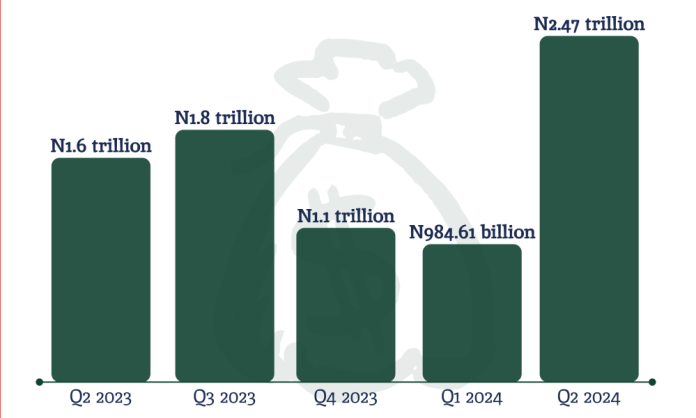Following his inauguration as President of Nigeria in May 2023, Bola Tinubu announced in his inaugural address that his administration’s industrial policy would leverage a comprehensive range of fiscal tools to boost domestic manufacturing and reduce the country’s reliance on imports. This statement signalled a commitment to promoting economic self-sufficiency and growth through strategic investment in Nigeria’s industrial sector.
He said, “I have a message for our investors, local and foreign: our government shall review all their complaints about multiple taxation and various anti-investment inhibitions.
“Interest rates need to be reduced to increase investment and consumer purchasing in ways that sustain the economy at a higher level. Whatever merits it had in concept, the currency swap was too harshly applied by the CBN given the number of unbanked Nigerians. The policy shall be reviewed. In the meantime, my administration will treat both currencies as legal tender.”
However, since his assumption, policies like the removal of fuel subsidy and devaluation of the Naira in the foreign exchange market have greatly impacted the economy, causing several manufacturing companies to leave the country. A report noted that the sector had lost more than 200 factories between 2015 and 2023 with more than 300 manufacturers delisting as members of the Manufacturers Association of Nigeria (MAN) within the period in view.
Similarly, within the first year of Tinubu’s administration, no fewer than eight multi-international organisations announced their exit with reasons tied to the harsh economic realities of the country.
Some of these companies included GlaxoSmithKline in August 2023, Equinor and Sanofi-Aventis Nigeria Limited in November 2023, Procter & Gamble in December 2023, Bolt Food and Jumia Food in December 2023. Others are Microsoft in May 2024, PZ Cussons Plc in April 2024, Kimberly-Clark as well as the divestment of assets of some oil companies.
READ ALSO:RipplesMetrics: FAAC allocation to LGAs can solve four major problems in Nigeria
Despite the recent exits of several companies from the sector, which were anticipated to lead to a decline in tax revenue, data compiled by Ripples Metrics reveals a surprising trend. Contrary to expectations, Company Income Taxes have increased over the past quarters, indicating a resilience in the sector’s tax contributions that defies initial predictions.
Tax increment over the quarters
The volatile dollar exchange rate has created a challenging environment for companies, making it difficult for them to access stable foreign exchange, which in turn hinders their ability to maintain stable pricing for production and manufacturing processes. However, data shows that over time taxes have increased during this time.
Between the second quarter of 2023 and 2024 Q2, the total taxes generated from companies was N7.9 trillion which is more than the total CIT generated between 2016 to 2020.
In Nigeria, companies are subject to Corporate Income Tax (CIT) on their profits, with a key distinction in taxation scope: domestic companies are taxed on their worldwide income, whereas foreign companies are only taxed on the income generated within Nigeria.
According to the Nigeria Bureau of Statistics report, in Q2 2023, the CIT generated was N1.6 trillion. The taxes grew to N1.8 trillion in Q3, 2023 but subsequently dropped to N1.1 trillion and N984.61 billion in Q4, 2023 and Q1, 2024 respectively.
In the recent report by the bureau, CIT for Q2 2024 was reported at N2.47 trillion, indicating a growth rate of 150.,83% from N984.61 billion in Q1 2024. Agriculture, forestry and fishing recorded the highest growth rate with 474.50%, followed by Financial and insurance activities and manufacturing with 429.76% and 414.15 respectively.
However, Ripples Metrics gathered that over the nine-year period spanning 2015 to 2024, Nigeria’s tax authorities collected a total of N20.68 trillion in corporate taxes, representing a significant revenue stream for the government.
By: James Odunayo
The post RipplesMetrics: Nigeria generating more taxes from companies, but they are leaving appeared first on Latest Nigeria News | Top Stories from Naomisophyblog.

